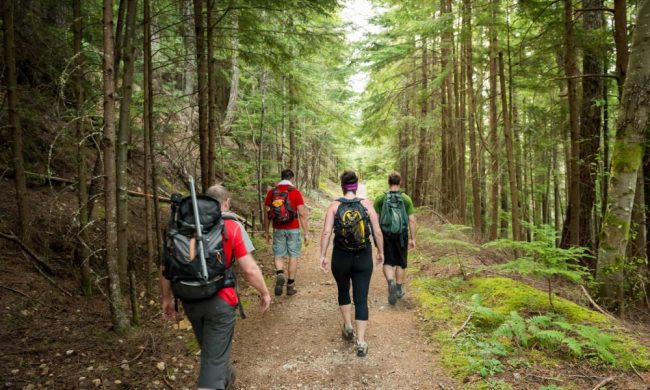Doctors Explain How Hiking Actually Changes Our Brains
Hiking is one of the best ways to promote overall health and reduce the risk of developing health problems. Physical inactivity is associated with numerous health problems, and studies have shown that starting some form of physical activity can prevent chronic disease and premature death, as well as improve health and quality of life. If you’ve ever hiked, at least you know it’s a cleanse for body, mind and soul, but researchers have found it can also change our brains.
Time outdoors improves our mood and calms us down: Walking in nature reduces rumination, neutralizes negative energy and prevents anxiety. The Proceedings of the National Academy of Sciences published a study that found time spent in nature can reduce compulsive negative thoughts.
The researchers compared the reported rumination of participants who wandered in both urban and natural environments and found that those who wandered in a natural environment for 90 minutes reported reduced ruminant levels and reduced neural activity in the subgenital prefrontal cortex, an area of the brain associated with mental illness. On the other hand, participants who walked in an urban environment did not report reduced rumination. The researchers also noticed that increasing urbanization is correlated with increased cases of depression and other mental illnesses.
Psychologists Ruth Ann Atchley and David L. Strayer agree that technology and urban noise can disrupt our cognitive thinking by demanding attention and preventing us from concentrating. However, spending time away from technology in nature can promote creative thinking, calm the mind and treat mental fatigue. They have carried out studies showing that creative problem-solving is improved when it is disconnected from technology and reconnected with nature.
Researchers at the University of British Columbia found that aerobic exercise increases the hippocampus volume in the brain in women over 70, a part associated with spatial and episodic memory, which improves memory loss, reduces stress and anxiety, increases self-esteem and releases endorphins. Hiking is also a good exercise, burns between 400 and 700 calories per hour and is more joint-friendly than other activities such as running. It can improve ADHD in children, as its symptoms include difficulties with impulse control, concentration, distraction and excessive hyperactivity. A study conducted by Dr. Frances Kup and Dr. Andrea Faber-Taylor confirmed that exposure of children to green outdoor activities can reduce symptoms.
Moreover, it is easy to start hiking and reap the fruits. Start small and test your skills to see what works best for you.
You will need good walking shoes, a hat, light clothing and a bottle of water. You can also buy trekking poles to increase your speed and relieve pressure from your knees. You can find maps of the routes online or download a smartphone app to help you switch off the signal on your phone and enjoy the tour.










